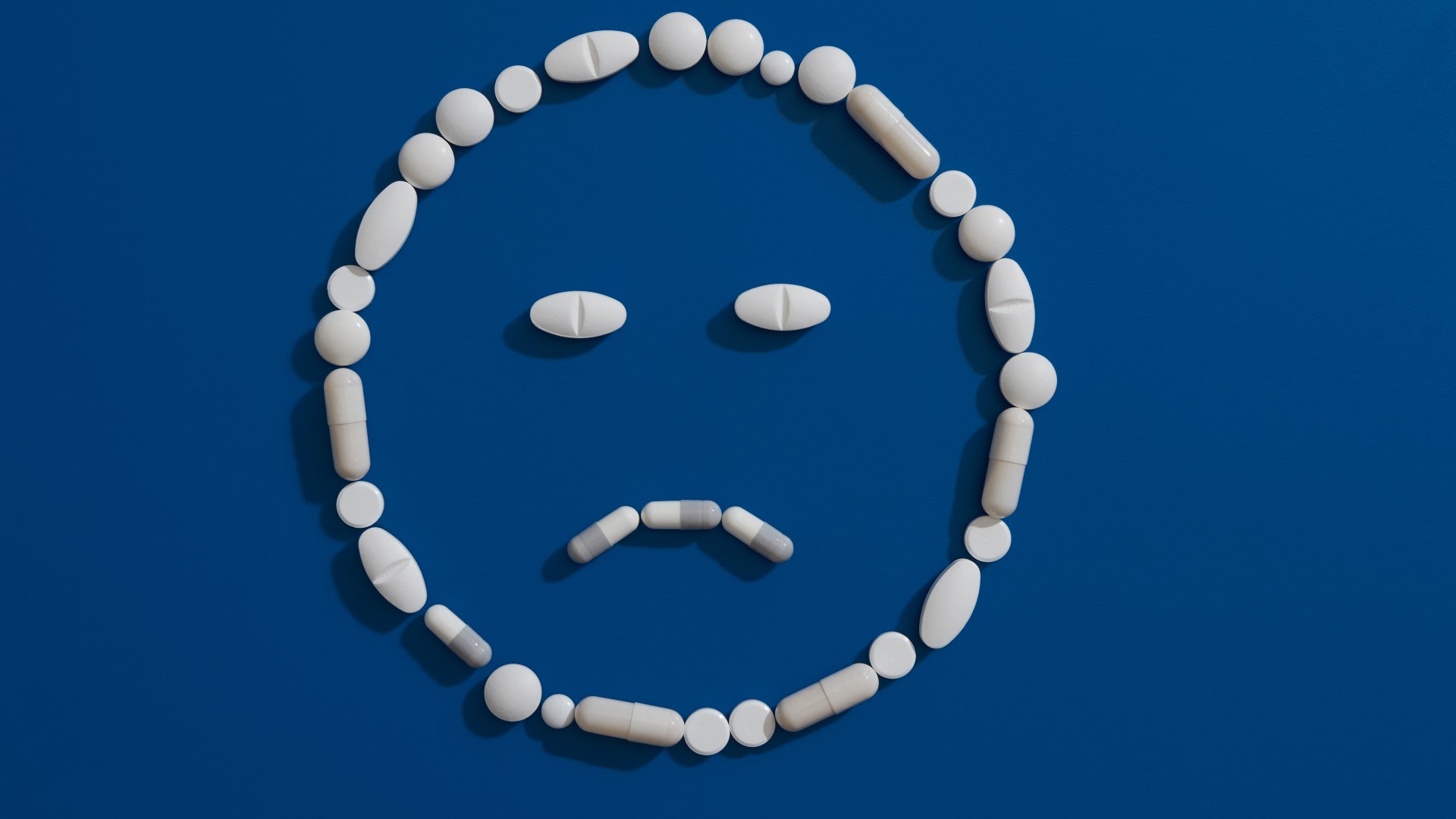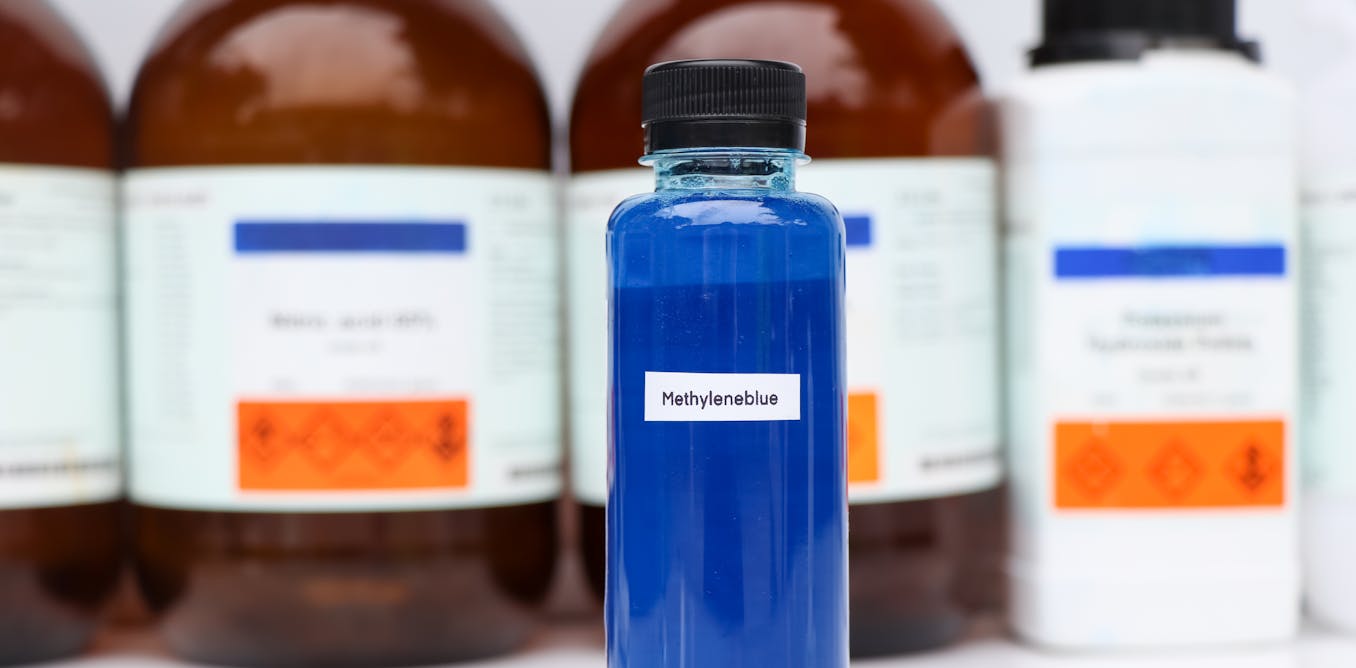MEDICINES are designed to make you feel better – but they don’t have the desired effect.
Some, including ones you might find in your bathroom cabinet, can come with serious and surprising side effects – like triggering depression.
7
Here in the UK, one in four of us will experience a mental health problem each year, and depression is one of the most common.
Approximately 4.5 million people are currently living with the debilitating disease.
We all go through periods of feeling sad, angry, or withdrawn from the world.
But with depression, these feelings persist over very long periods, to the extent that they significantly disrupt someone’s quality of life.
There is no single cause of depression and the things that trigger it vary widely from person to person, from traumatic events and genetics to medicines.
“Some medicines can affect the chemical balance in your brain, which might lead to feelings of depression,” pharmacist Thorrun Govind tells Sun Health.
“This is why it’s so important to keep an open dialogue with your healthcare professional if you notice any changes in your mood while taking medication—they are there to help.
“It’s always best to check with your healthcare professional before stopping any medication to ensure it’s safe to do so and to discuss your concerns.”
1. Finasteride

7

7
Earlier this year, men on a popular hair-loss drug Finasteride were warned of its link to depression and suicidal behaviour.
The medicine – taken by Donald Trump – is used to treat benign enlarged prostate and male pattern baldness but is only available on the NHS for the former condition.
It works by stopping the sex hormone, testosterone from turning into another hormone called dihydrotestosterone (DHT), which can cause the prostate to grow, and hair to fall out.
It has been linked to mood disorders previously, but the UK’s medicine watchdog has intervened after “a comprehensive review of the safety” of the drug.
The Medicines and Healthcare products Regulatory Agency (MHRA) said its Yellow Card scheme, designed to allow patients to report adverse effects of medicines, had received 281 reports of depressed mood disorders and suicidal or self-harm behaviours.
2. Antibiotics
Certain antibiotics, like levofloxacin and ciprofloxacin – both part of the fluoroquinolone family – have been linked to depression.
They’re commonly prescribed by the NHS for bacterial infections, like UTIs, but it turns out they might mess with more than just germs.
Research shows that taking a single course of antibiotics in the penicillin group can bump up your risk of depression by 23 per cent.
If you have to take two courses of the drugs, that risk climbs to 40 per cent.
And if you’ve had five or more courses, the risk shoots up to a whopping 56 per cent.
Robert Stevenson, a “respected” and “experienced” consultant cardiologist, took his own life around a week after he started a course of ciprofloxacin.
Worried about your medicine?
Prescription drugs heal us when we’re sick, ease our pain when we ache, and prevent or control long-term conditions.
But sometimes, even when they do the job they’re supposed to, they have unwelcome side effects.
Don’t let that make you automatically rule out a medication, especially if it’s an important part of managing a health condition.
But you shouldn’t accept unpleasant reactions without question, either.
It’s also important you never stop taking prescribed medicines without speaking to you doctor first.
Your doctor can help you determine if the side effects or conerns are serious, will go away on their own, or can be prevented
He had no previous history of depression or mental health problems.
“Antibiotics may lead to depression as a side effect because they may disrupt the balance of gut bacteria, known as the microbiome,” Thorrun explains.
“Your gut and brain are closely connected through the ‘gut-brain axis’ and changes in gut health can influence mood and mental health.
“If you notice any changes in your mental health while on antibiotics, it’s worth discussing with your healthcare professional.”
3. Birth control

7
For decades, research has suggested a link between hormonal birth control and depression.
It is thought that changes in hormone levels – like a decrease in testosterone or an increase in progesterone – could play a major role.
In The Lowdown’s survey, 47 per cent of women said their contraception had negatively affected their mental health at some point in life.
For ten years, Holly Deakin, 28, had suffered anxiety and mild depression that left her feeling “exceptionally more sensitive to everything”.
Signs and symptoms of depression
You may feel:
- Continuously low or sad
- Hopeless
- Tearful
- Anxious
You may have:
- No motivation or interest in things, such as hobbies
- Suicidal thoughts
- Lack of appetite and energy
- Disturbed sleep
- Urge to avoid friends or socialising
If you or someone you know is experiencing a mental health problem, the following organisations have more information or can help:
Mind: mind.org.uk, 0300 123 3393
Rethink Mental Illness: rethink.org, 0300 5000 927
Samaritans: samaritans.org, 116 123
But when she switched from the Pill to the coil it was like a weight had lifted, she told The Sun in 2019.
It’s important to remember birth control affects everyone differently, with some people reacting well to it and others finding it unbearable to take.
Some studies haven’t found a strong connection between hormonal birth control and depression even suggesting that hormonal birth control might help protect against depression later in life.
Plus, birth control goes beyond mood, helping to regulate hormone levels and ease symptoms like heavy periods or the emotional rollercoaster of conditions like endometriosis.
4. Asthma medicines

7

7
An asthma drug prescribed to millions of children in the UK has been linked to depression, hallucinations and even suicidal thoughts.
Montelukast is used to prevent wheezing, difficulty breathing, chest tightness, and coughing caused by asthma in adults and children 12 months of age and older
New, US government-backed research found the medicine binds to brain cells controlling mood, decision-making, and attention.
The fresh research was sparked by thousands of heartbreaking stories from families of children on montelukast.
This included Harrison Sellick, from Melbourne, Australia, who tried to take his own life at just five years old.
Another was Harry Miller from London, England, who was 14 when he died by suicide in 2018 after taking an asthma drug.
It’s unclear how many suicides in the UK are linked to montelukast.
However, the UK’s Medicines and Healthcare Products Regulatory Agency (MHRA) has received around 1,205 reports of psychiatric side effects tied to the drug since 1998.
Of these, almost half (551) involved children under nine.
5. Heartburn medicines
A US study from 2019 highlighted two common heartburn treatments – antacids and proton-pump inhibitors (PPIs) – as medications that may cause depression as a potential side effect.
While depression isn’t a usual reaction, PPIs like omeprazole (Prilosec) and esomeprazole (Nexium) can interfere with the body’s absorption of vitamin B12, an essential nutrient for mood.
This disruption has been linked to depression in at least one study.
“One theory is that PPIs can disrupt the gut’s bacteria, which may lead to depression,” Thorrun explains.
Antacids, whether over-the-counter or prescription, are typically safe for occasional use.
However, using them a lot can still carry some risks, so it’s worth monitoring any unexpected side effects, especially if mood changes occur.
This research highlights the importance of careful medication management and consulting your GP if you notice changes in your mental health while using these treatments.

7




